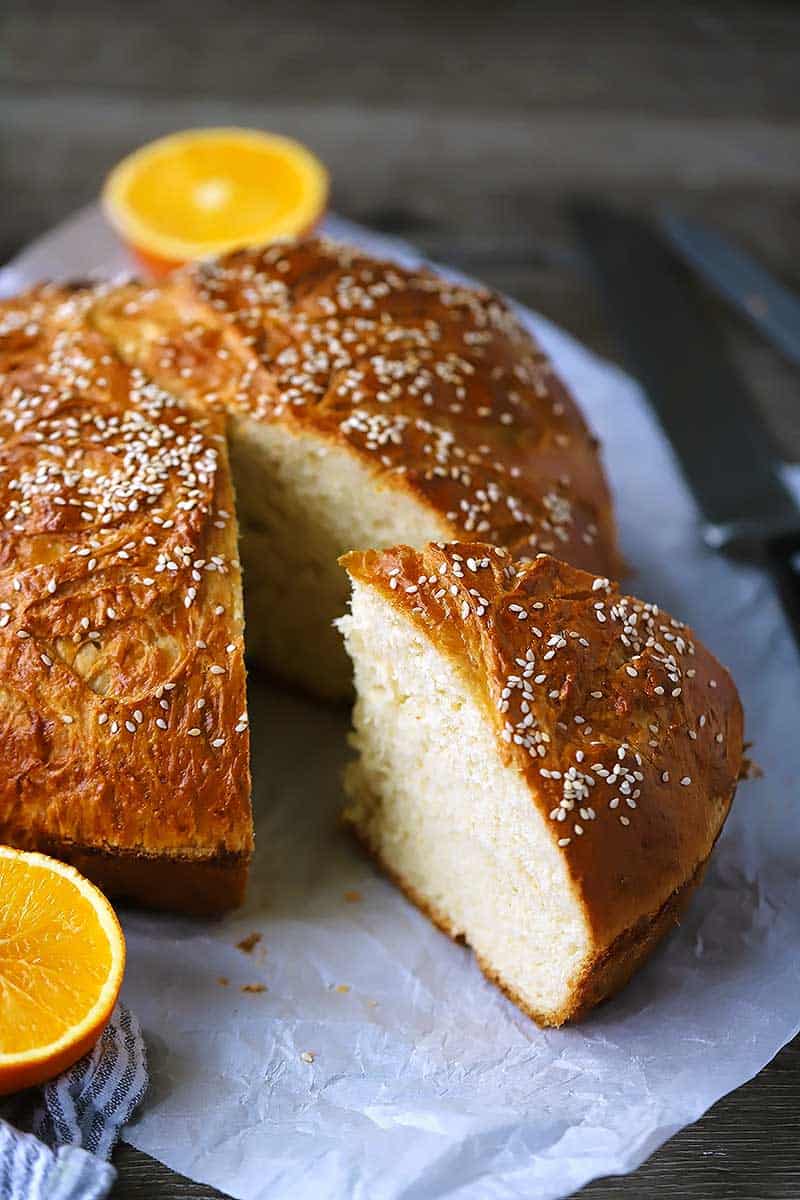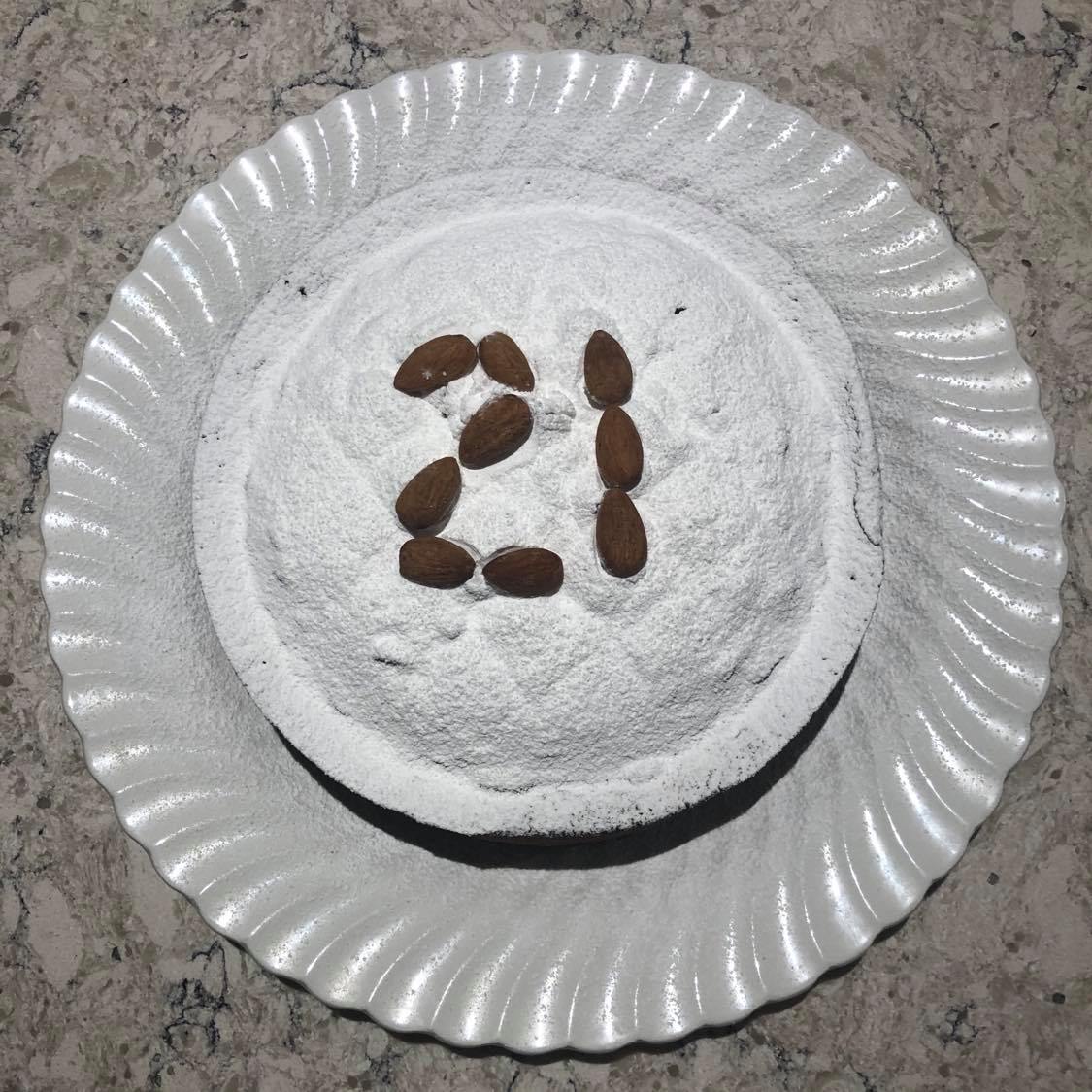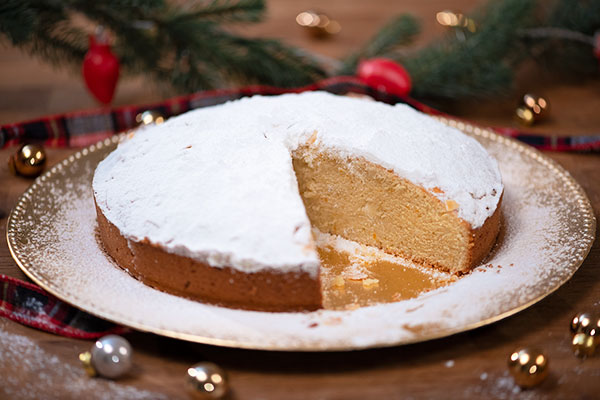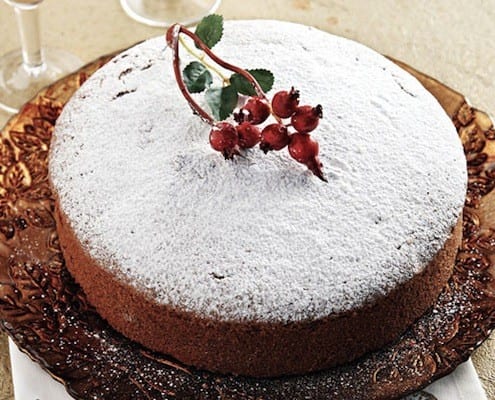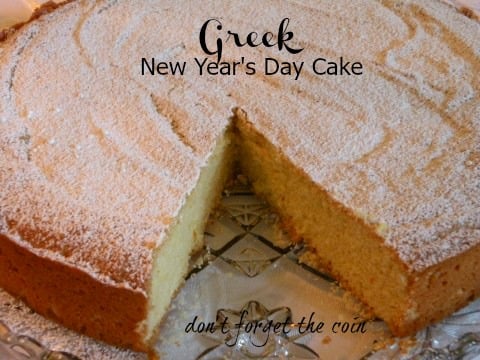Vasilopita
βασιλόπιτα
Vasilopita Basil-pie' or 'Vassilis pie', see below) is a New Year's Day bread, cake or pie in Greece and many other areas in eastern Europe, the Balkans and the Middle East which contains a hidden coin or trinket which gives good luck to the receiver, like the Western European King Cake. It is associated with Saint Basil's day, January 1, in most of Greece, but in some regions, the traditions surrounding a cake or pita with a hidden coin are attached to Epiphany or to Christmas. It is made of a variety of dough, depending on regional and family tradition, including tsoureki. In some families, instead of dough, it is made from a custard base called galatopita (literally milk-pita). In the Thessaly region a pork filled phyllo pie is made with a hidden coin. The pie is also known as Chronópita (Χρονόπιτα < χρόνος: chrónos ⇨ time/year + πίτα: píta ⇨ pie), meaning "New Year's pie". In other areas of the Balkans, the tradition of cake with a hidden coin during winter holidays exists, but is not associated with Saint Basil at all. The practice is documented among Ukrainians (a pirog is cut); Romanians; Serbs ("česnica", eaten on Christmas); Albanians ("pite" or “kulaç”, eaten by both Christians and Muslims); Bulgarians (pogacha, Novogodishna banitsa (for New Year's), Svety Vasileva pogacha); etc. On New Year's Day families cut the vasilopita to bless the house and bring good luck for the new year. This is usually done at the midnight of New Year's Eve. A coin is hidden in the bread by slipping it into the dough before baking. At midnight the sign of the cross is etched with a knife across the cake. A piece of cake is sliced for each member of the family and any visitors present at the time, by order of age from eldest to youngest. Slices are also cut for various symbolic people or groups, depending on local and family tradition. They may include the Lord, St. Basil and other saints, the poor, the household, or the Kallikantzaroi. In older times, the coin often was a valuable one, such as a gold sovereign. Nowadays there is often a prearranged gift, money, or otherwise, to be given to the coin recipient.
Source: Wikipedia
Recipes

Vasilopita Cake Recipe (Greek New Year's cake) - My Greek Dish

Greek New Year's Cake-Vasilopita | Mediterranean Diet, Healthy Greek & Blue Zone Ikaria Longevity Recipes by Diane Kochilas

:max_bytes(150000):strip_icc()/vassilopita-greek-new-years-cake-2021-1705615-f493ac1edef24b93b6b089a5160770c1.jpg)

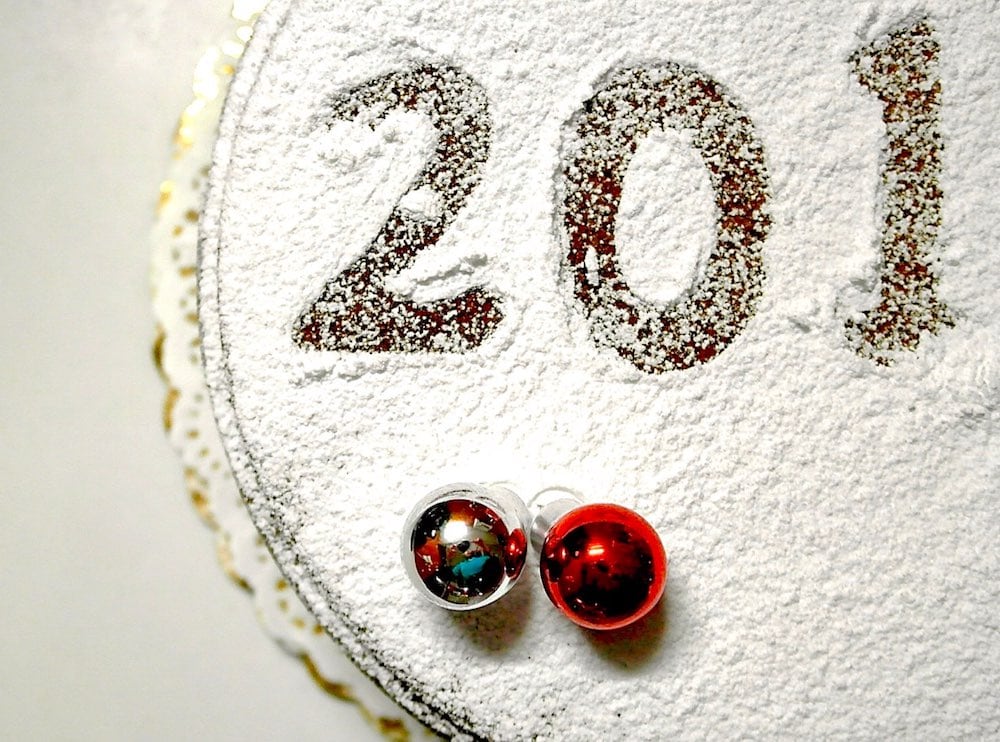
:max_bytes(150000):strip_icc()/1899033-3318da57f4b34da4a9b34e5ea7e79a89.jpg)
